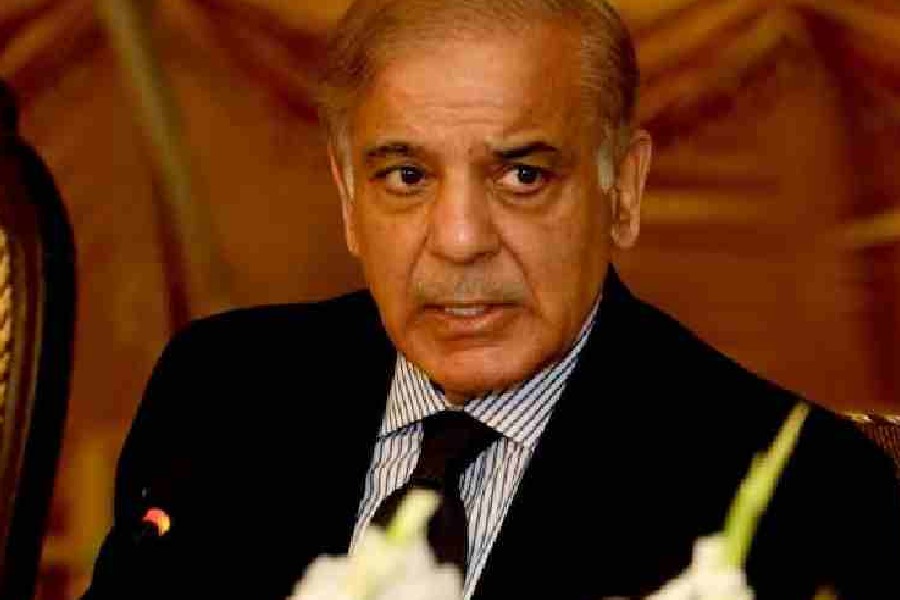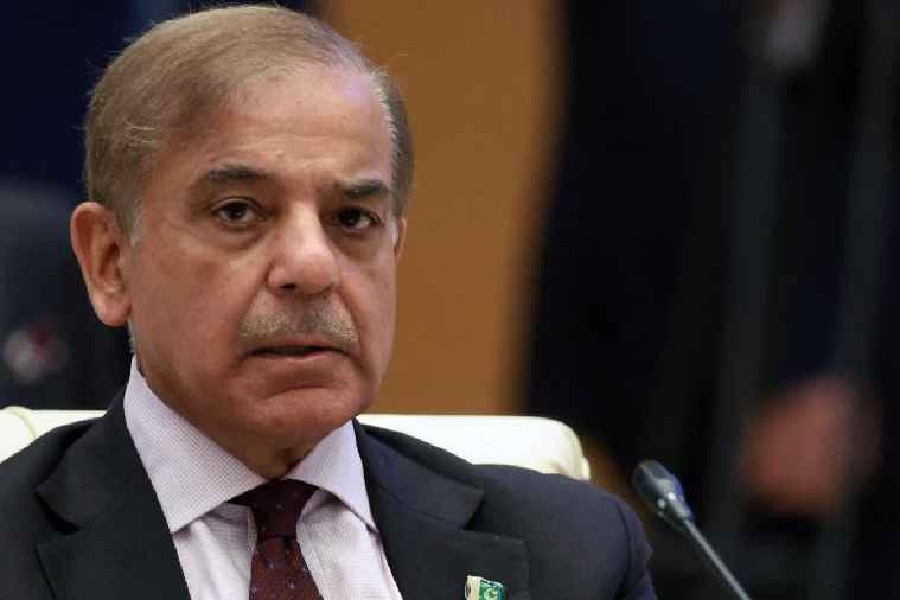Prime Minister Shehbaz Sharif will start consultations on Thursday and meet Leader of the Opposition Raja Riaz to finalise the name of the interim prime minister to oversee the election after the dissolution of the National Assembly.
President Dr Arif Aliv dissolved the assembly before the end of its legal term on Wednesday on the advice of the prime minister. The step has been taken to give extra time to the Election Commission of Pakistan (ECP) to organise polls.
Sources told PTI that Prime Minister Shehbaz would meet Leader of Opposition Riaz to discuss the interim leader.
The two leaders have three days to agree on a name, otherwise, the Speaker of the defunct assembly would appoint an eight-member panel, including four lawmakers each from the treasury and opposition benches, to forge an agreement. Both sides, the prime minister and leader of the opposition, can put forward a maximum of two names for the top post.
The panel has three days to agree and in case it fails, all names considered during its meetings would be sent to the ECP which would appoint one of them as the interim premier within 48 hours.
The same exercise is repeated in provinces where chief ministers lead the process with the local opposition leaders. The process was adopted in Punjab and Khyber-Pakhtunkhwa (KP) when their assemblies were dissolved in January.
In the case of Punjab, no agreement was reached at the first two levels and ultimately the ECP was involved and appointed the incumbent Mohsin Naqvi as chief minister. However, in KP, the then-chief minister and leader of the opposition agreed to appoint the current Azam Khan as interim chief minister.
Under the Constitution, the prime minister will continue to serve for a limited period until a caretaker premier takes an oath.
Sources said that Prime Minister Shehbaz has already held detailed discussions with his former 13-member coalition government parties and there is an agreement on the nominee but the name has not been revealed.
Raja Riaz, a dissident leader of PTI, is considered close to leading parties like Pakistan Muslim League-Nawaz (PML-N) and Pakistan Peoples Party (PPP) and is expected not to make a show and support the government candidate.
There are also reports that Riaz is trying to seek a PML-N ticket for the next elections.
Traditionally, the interim set-up was tasked to organise elections in a fair and free manner but laws have been amended lately and the next caretaker government would have powers to make decisions on the key issues due to the fragile economic situation.
The interim set-up may also last longer this time as the ECP may not be able to hold an election within 90 days due to the issue of delimitation of constituencies for which it can spend 120 days.
Legally, the ECP is bound to hold elections on the basis of new census results which were endorsed by the government but the election body has not yet decided whether to hold polls on the old or new census data. The existing constituencies are based on the 2017 census.
Since the assembly has been dissolved before time, the ECP would hold elections within 90 days.
If the National Assembly had completed its constitutional term, the polls would have been held within 60 days, but in case of dissolution before time, the elections should be held within 90 days.
The polls are expected to be delayed for a couple of months as new census results have been approved, which makes it a constitutional obligation to carry out delimitation before elections.
The ECP is bound to carry out delimitation within 120 days and then announce the election schedule.
Though it is technically possible to expedite the process and determine delimitation of constituencies in minimum time and then go for elections within 90 days, it is not clear if the ECP would follow the deadline as it has a valid reason to overshoot the deadline.
The outgoing assembly was the 15th National Assembly which began its five-year journey on August 13, 2018, with the election of a Speaker and Deputy Speaker. The outgoing National Assembly was elected after an election held on July 25, 2018.
Except for the headline, this story has not been edited by The Telegraph Online staff and has been published from a syndicated feed.












